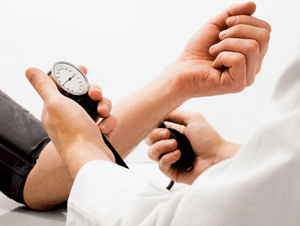Tips to stay healthy during Ramadan in the UAE
Tuesday 31st May 2016
Fasting in Ramadan, one of the five pillars in Islam, is just around the corner. The act is compulsory on all able bodied Muslims while pregnant or breastfeeding women, the severely sick, the elderly and infants are exempt from fasting. This year Muslims in the UAE will abstain from food, water and sexual activities from sunrise to sunset during the intense summer heat. Dr. Zeeshan Khan, Specialist Internal Medicine at Medeor 24x7 Hospital outlines some tips to follow to avoid dehydration and heat exhaustion and how those with chronic illnesses can effectively manage their sickness during Ramadan.
Conserve Energy: Avoid staying up late, attending or hosting too many iftar parties as this increases the stress on the body and will make observing the fast all the more harder. Make sure you receive a good night’s rest in order for your body to rejuvenate for the next day.
Go easy on the oil: Deep fried pakoras, bhajjis, samosas are a staple of iftar tables. These foods can disturb the metabolism and can cause dizziness, headaches and fatigue. Break your fast with dates and a glass of water or laban. Next have a warm soup, this replenishes fluid in the body and helps settle the digestive system. A balanced meal after should contain complex carbohydrates, protein, fruits and vegetables.
Pregnancy and Breast Feeding: Those in the first trimester of their pregnancy will find fasting difficult especially as they suffer from morning sickness. If you have crossed the first three months and face no complications in your pregnancy, you can fast. Make sure you get ample rest when fasting, avoid getting stressed or anxious and get all your nutrients during iftar and suhoor. Mothers who are breast feeding should consult their Doctor before deciding to fast.
Chronic Illness: Those with diabetes, hypertension, thyroid diseases, PCOS and other hormonal complications usually take regular medication. According to the International Diabetes Federation, 19% of UAE’s population suffers from the Diabetes and most of them would like to fast. Those suffering from Type 2 Diabetes can usually fast with their Doctor prescribing a different dosage or an alternative medicine. Those with Type 1 Diabetes should ideally not be fasting. Most sufferers of high blood pressure are one or two tablets daily; they do not find fasting difficult. A small portion of hypertension patients are on multiple medication and Doctors usually don’t clear them for fasting. Others on medication should consult their physician to understand how fasting can affect their health.
Stay hydrated: Stay away from dehydrating drinks like coffee and instead make sure to drink at least 8 glasses of water between Iftar and Suhoor. During the day, it is easy to feel disoriented and confused if you haven’t had enough water – break your fast then with a glass of water. You can always make up for it after Ramadan.
According to the ACE study conducted in 15 countries in which Dr. Ahmed Alhaj Saleh, Consultant – Internal Medicine at Medeor 24x7 Hospital, Dubai, was the primary investigator for Dubai, the prevalence of hypertension in the Middle East and Gulf areas is 42%.
 Some tips for High Blood Pressure patients during Ramadan
Some tips for High Blood Pressure patients during Ramadan
Below are some helpful tips for people who suffer from high blood pressure on how to fast during the month of Ramadan without causing any harm to their health:
Lifestyle during Ramadan:
Stay hydrated: Drink plenty of fluids from Iftar until Suhoor to prevent complications that may occur.
Salt: Reduce salt consumption
Diet: Control food quality and quantity
Physical activity: A while after Iftar, go for a walk (4 kms at least), several times a week
Fat: Avoid any food that contains high percentage of fat.
Medication during Ramadan:
Most medication prescribed for people with high blood pressure need to be taken once or twice a day. Typically these medications will have a 12 – 16 hour effect. The tablets can be taken at Suhoor, and during the evening at Iftar.
Patients who have tablets prescribed three times daily are likely to have short acting drugs. For these patients, it would be prudent to ask their physicians about the afternoon dose and if it can be adjusted to best help the fasting month. Usually most doctors are more than willing to help with adjustments.
Attributed to: Dr. Georgie Thomas Specialist - Cardiology
